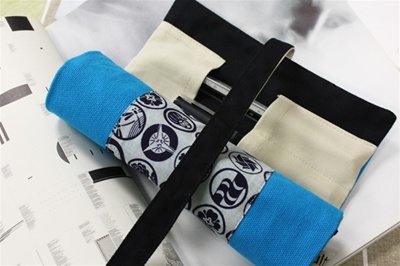Gameschooling and Homeschooling: Why and How to Incorporate Games
Do you use games in your homeschool? If not, it is time to give gameschooling a try in your routine. Gameschooling is a fantastic way to build relationships and connect with your child while learning and having fun at the same time! Parents can’t ask for more than that. We have created a list of our favorite games, organized them by subject, and have them posted here.

One of the awesome benefits of homeschooling is that we have flexible, adaptable schedules. Families can make time to play together. Board games can be an integral part of your homeschool routine. While you can play games like Monopoly and chess, gameschooling involves thousands of games, many of which may be unknown to you.
Are you skeptical? Does gameschooling sound like a whole lot of fun without any learning? Let’s take a look at the benefits your children (and you) will reap.
Encourages Social Skills
As your children engage and play games, they are working on developing better social skills. These skills include:
- sharing
- taking turns
- communication
- listening
- cooperation
- creativity
- handling wins and losses
Games Introduce New Concepts
Games are a less-intimidating way to introduce new concepts or skills to your children. Would you rather learn how to divide on a worksheet or by playing a challenging new math game?
Most children would prefer to learn and develop their skills and concepts through games. Teach your children all 50 states with games, or have them learn how to count coins with games.
Gameschooling Lets Kids Practice
Practicing skills can be hard for children. If you have a child who is struggling to understand subtraction, multiple worksheets with red X’s lead to embarrassment and frustration.
Games are a judgment-free way to practice skills. Games are safe for kids. There is no pressure to get the perfect grade. Your children focus on enjoying and playing the games. Kids feel encouraged when they win games using skills they’ve developed.
Instead of drill and kill, learning becomes fun for your children. Truth be told, playing a board game feels like you are cheating. Can learning a new skill REALLY be this fun? Absolutely!
Parent-Child Connection
A strong parent-child connection is vital for effective parenting and effective homeschooling. Playing with your children, whether it is imaginative play or a board game, is a sure-fire way to bond and connect with your kids.
If something is wrong with your homeschool or you find yourself butting heads with your children, slowing down and connecting with your kids is a great way to get back on track.
Kids often find themselves frustrated over skills and subjects. Parents want to see smiles and laughs, not tears of frustration. Don’t push your children too hard. Step back, pull out some games, and enjoy the fun (and smile because your children are learning when they don’t realize it).
How to Incorporate More Games in Your Homeschool
If you’re convinced that gameschooling should be in your routine, figuring out how to incorporate games is the next step.
Here are a few ways to add games to your routine.
- Put a game into your morning routine.
- Pick a card game for your morning basket.
- Play a game after dinner.
- Select a day each week to play games.
- Use games during breaks.
- Encourage your kids to play one-person games during their downtime.
Games are available in ALL subjects. You might be shocked! From geography to science, games make learning easy. Before you purchase a game, consider these factors:
- Number of Players: You want to make sure the game fits the size of your family. No one likes to be left out of the fun.
- Ages: If your kids vary in ages, make sure everyone has options. Start off with games that fit a wide range. There are amazing games for older kids, so you might be tempted to check them out. Wait and start off with games your kids can play right now.
- Ease of Use: Directions that take 20 minutes to read mean the game is hard to play. Your family might not want to play it over and over again.
- Level of Difficulty: All games are educational, but you want a level of challenge as well.
- Fun: Games are fun, but you want to start off with REALLY fun games to get your family interested in gameschooling.
Don’t feel as if you need a closet full of games to start off. Purchase one game a week, or head to your local thrift store. You’ll be shocked at the number of board games available. Ask for games for holidays, or tell your friends and family that you’ll happily take games they don’t use. Don’t forget to check out yard sales!
Games count as learning, so make sure that you count it as learning time for your records. Take pictures for your homeschool portfolio. Make a game list just like a reading list, or make a gameschooling group with locals in the area. You can set up a meeting every week or bi-weekly.
Give Gameschooling a Try
Gameschooling might seem like a foreign concept, but homeschoolers all around the world incorporate games because they see the value of playing with their kids. Games build new skills and give children a safe, encouraging way to practice existing skills. We have built a shop just for gameschooling. Click here to see some of our favorite games. And please leave us comments below with what you would add to our list!











We’ve always incorporated games into our family life, which is our homeschool life. 🙂 We do USA Trivia almost every night after we eat. We don’t use the board or roll the die, we just ask the trivia questions. We rotate “askers” and we answer youngest to oldest. My husband and I play too, so our resident historian, my husband always answers last. Our oldest son, 18, is also a serious history buff and will likely major in History when he goes to college next year, and it’s really fun to see The Boyz answer correctly and Daddy not. 🙂 We end up having some pretty in depth conversations about the history on the cards sometimes lasting 2+ hours. Our dinner time routine wouldn’t be complete without our history “lessons”!
What a great idea to use trivia as a way to learn history! My oldest son is always asking if we can play more games in homeschool. It’s taken me some time to get on the bandwagon of games as a legit way to do school! So I am going to try adding Trivia to the mix! Thanks!!
We do scrabble jr, uno, ratuki, scrabble slam, and monopoly at the moment for my 7 year old. Him having dyslexia, SPD, dyspraxia, and fine motor delay, this helps him better learn some things. We are looking to add more games a few at a time as we can afford them this year.
Games with my kids (all boys, ages 5-9) usually leave me frustrated. I’ve had recent relative success with Uno, though, which makes me think I could try others.